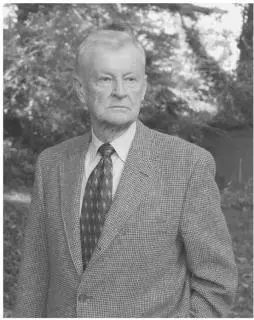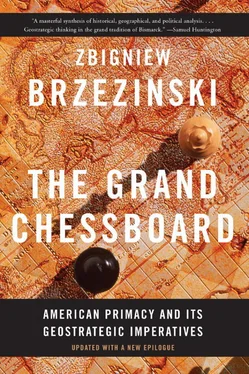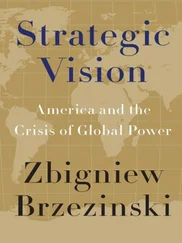Russian Orthodox Church, 81
Rutskoi, Aleksandr, 111
Ryurikov, Dmitryi, 104 n
Saragossa, Treaty of, 19
Saudi Arabia, 95, 133
Schauble, Wolfgang, 74
Senkaku Islands, 154
Shevardnadze, Eduard, 147
Shiites, 134
Silk Route, 144
Singapore, 157, 165, 167, 168 n , 171, 205
Slovakia, 82, 84
Slovenia, 81, 82
Solzhenitsyn, Aleksandr, 114
South Africa, 21
Sony Corporation, 182
South Korea, 41, 47–48, 153, 214; China and, 171; U.S. presence in, 54, 180, 181, 190; see also Korea
Soviet Union, 5–6, 36, 105, 111, 128, 166, 205; in arms race with United States, 160; Baltic states in, 103; China and, 8–9, 87–88, 173; collapse of, xiii, 9, 10, 68, 87, 88, 91, 96, 98, 129, 139, 141 ( see also Russia); France and, 62; Iran and, 134; invasion of Afghanistan by, 7, 91, 141; Japan and, 154; non-Russians in, 110; in World War II, 5
Spain, 19
Spanish-American War, 3
Spratly Islands, 154
Stalin, Joseph, xiv, 91, 103
Sung dynasty, 15
Sun Tsu, 169, 171
Sweden, 77, 84
Syria, 137
Taiwan, 48, 152, 154, 156, 164–65, 168, 169, 181, 183, 197, 205, 206, 214; and rise of Greater China, 44, 159, 167, 171, 188–89, 207
Tajikistan, 125, 129, 131, 138, 139, 143; China and, 166; ethnic groups in, 132; in Persian Empire, 137; Russian military involvement in, 89, 95, 107, 142
Tamerlane, 131
Thailand, 13, 48, 156, 168 n
Tiananmen Square pro-democracy movement, 163
Tito, Josip Broz, 88
Tong, Kurt, 193 n
Tordesilla, Treaty of, 19
Trans-Eurasian Security System (TESS), 208, 209
Transatlantic Free Trade Agreement, 200
Trubetzkoy, Prince N. S., 110
Tunisia, 78
Turkey, 41, 47, 52–53, 93, 95, 114, 197, 203–4; conflict with Greece, 82; and Eurasian Balkans, 124, 125, 129, 133–40, 143, 144, 146–50; modernization of, 119
Turkmenistan, 93, 125, 131, 138, 141, 143, 146, 204; China and, 149, 168; and Commonwealth of Independent States, 114; Iran and, 95, 144, 145, 150; in Persian Empire, 137; Ukraine and, 139, 147
U.S.-Japan Security Treaty, 28, 171, 175, 177
Ukraine, 9, 41, 46, 47, 51, 52, 59, 72, 85, 86, 95–97, 99, 104, 112–14, 122, 196, 203; in Commonwealth of Independent States, 88, 92–93, 113; and Eurasian Balkans, 136, 139, 147, 149; and expansion of NATO and EU, 82, 84, 121; famine in, 91; Germany and, 37, 69, 70
Union of Soviet Socialist Republics, see Soviet Union
United Nations, 66 n , 215; Security Council, 62, 175, 178
Uzbekistan, 48, 95, 121, 125, 130–32, 140–41, 143, 146, 149, 196, 203; China and, 168; in Commonwealth of Independent States, 113, 114, 144–45, 147; in Persian Empire, 137; Ukraine and, 139, 147
Versailles Treaty, 86
Vietnam, 13, 63, 154, 169
Warsaw Pact, 92, 100
Weimar Triangle, 70, 78
Western European Armaments Group (WEAG), 77
Western European Union (WEU), 50, 77
Wilson, Woodrow, 4
World Bank, 27, 28, 66 n , 164 n
World Court, 29
World Trade Organization (WTO), 28
World War I, 4–5, 90
World War II, 61, 68, 69; end of European era in world politics during, 5; Japan in, 173–75; public support for American involvement in, 25, 211; Soviet Union in, 90, 91
Yalta Conference, 86
Yang Baijang, 173 n
Yeltsin, Boris, 23, 97, 99, 102, 104 n , 107, 111, 113, 115, 116, 120
Yongchaiyudh, Chavalit, 168 n
Yoshida, Shigeru, 178
Yugoslavia, 53
Zyuganov, Gennadii, 111

Credit: Emilie Brzezinski
ZBIGNIEW BRZEZINSKI, formerly President Jimmy Carter’s national security advisor, is a counselor and trustee at the Center for Strategic and International Studies and a professor of American foreign policy at the School of Advanced International Studies at Johns Hopkins University. He is the author of Strategic Vision: America and the Crisis of Global Power , among many other books.
Praise for The Grand Chessboard
“[Brzezinski] has now provided another scholarly blueprint for what he believes the United States should do in coming years to further America’s interests, maintain the hegemony it commands, and prevent global anarchy. For Brzezinski this is a strategic game, not unlike chess, to outwit potential rivals…. Brzezinski has now stated and restated his concerns. His books are there for any political leader to use as material for future policy declarations. But it is difficult in the current situation to imagine much of a competition to take up Brzezinski’s ideas, however well they are argued here.”
—BERNARD GWERTZMAN,
New York Times
“The great merit of this volume lies in its analysis of the strategic outlook and policy dilemmas of a host of states in Eurasia. Brzezinski’s analysis of the triangular relationship among China, Japan, and America—together with the policy recommendations flowing therefrom—is particularly good.”
—
Foreign Affairs
“At its best, The Grand Chessboard makes permanent contributions to the national debate over American foreign policy and power. At its worst, it demonstrates the need for contemporary statesmen and political thinkers to immerse themselves more deeply in the rich tradition of Anglo-American strategic thought that brought first Britain and now the United States to global preeminence at an astonishingly low cost.”
—
Los Angeles Times Sunday Book Review
“The book is a must… for the current American foreign-policy decision-makers.”
—H-Net
“The former national security advisor is still a believer in geopolitics after all these years. Like most foreign-policy aficionados weaned on the Cold War, Brzezinski… has been forced by the disintegration of the Soviet Union to broaden his perspective—but not very far…. Like a grandmaster in chess, he plots his strategy several moves in advance…. This updated version of East-West geopolitics is worth taking seriously but it is also an amazing example of how a perspective can be revised without actually being rethought.”
—
Kirkus Reviews
“ The Grand Chessboard is the book we have been waiting for: a clear-eyed, tough-minded, definitive exposition of America’s strategic interests in the post–Cold War world.”
—SAMUEL HUNTINGTON, Harvard University, author of
The Clash of Civilizations and the Remaking of World Order
“ The Grand Chessboard is, at last, a lucid, brilliantly presented exposition of the necessary new framework for American foreign policy, tying together the objectives for the short, medium, and long term that the country should now begin to implement. This fills a vital need.”
—FLORA LEWIS, columnist,
International New York Times
“In this incisive book—itself on the most important documents to emerge in the wake of the Cold War’s end—Zbigniew Brzezinski displays his legendary scope and intellectual acuity in giving purpose to American power. In this time of drift, Brzezinski remains America’s paramount strategic mind.”
—NATHAN GARDELS, editor, Global Viewpoint
“ The Grand Chessboard will shock the timid, infuriate the unimaginative, and inspire the thoughtful reader. For those who believe America should lead but are unsure how, it offers a pragmatic and compelling vision. For those in charge of U.S. policy-making, it is a required manual.”
—LIEUTENANT GENERAL WILLIAM E. ODOM, retired, director of national security studies, Hudson Institute
ALSO BY ZBIGNIEW BRZEZINSKI
Читать дальше













